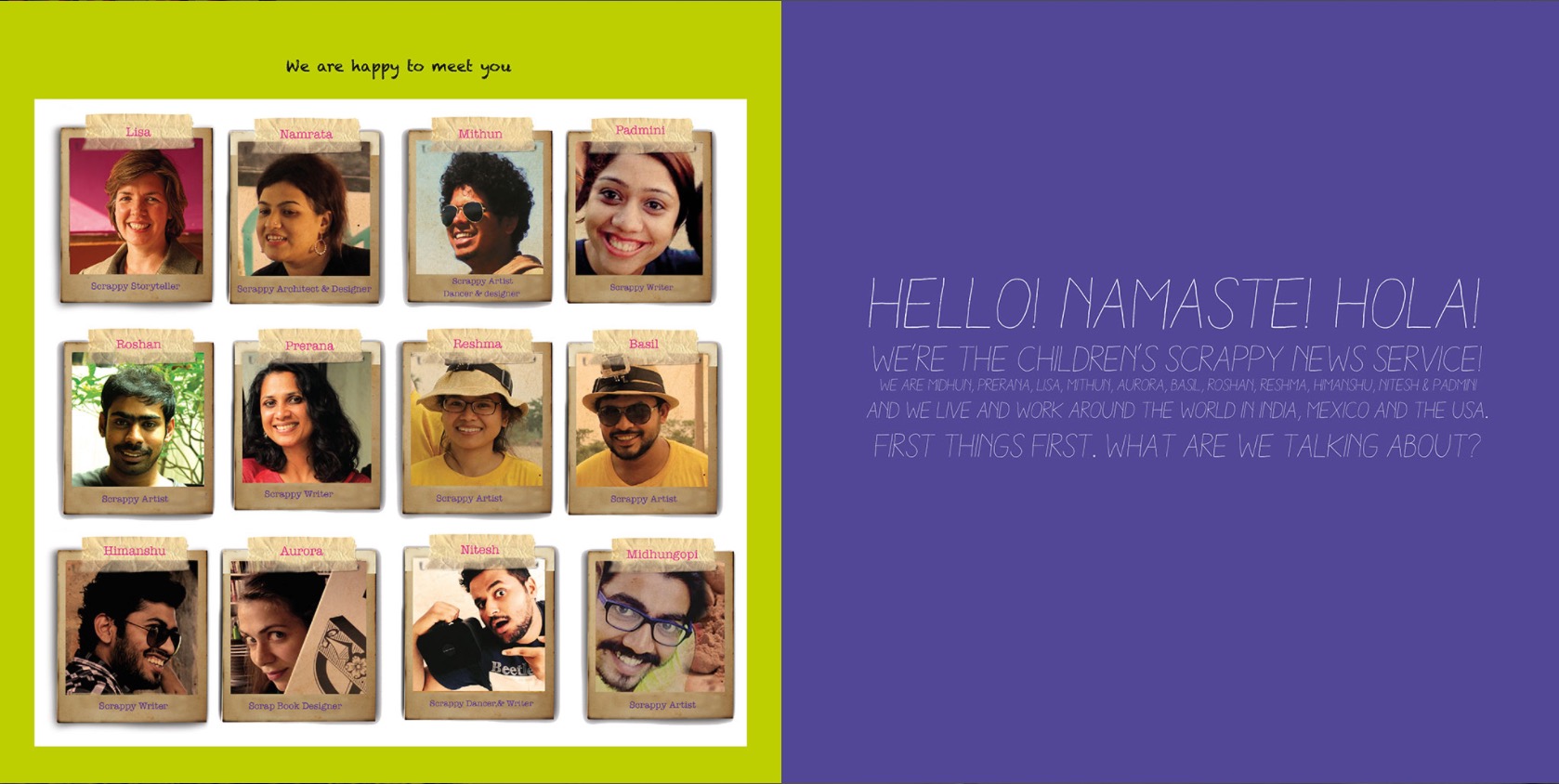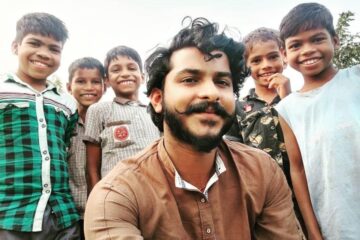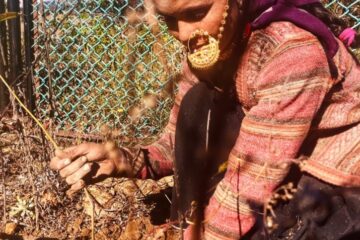As a part of my academic internship in 2016, I served at a nonprofit based out of Delhi, India, an initiative that created design-driven stories and television shows that empowered youth to transition from school to equitable enterprises of their choice in underserved areas. We launched a program to teach students 21st-century skills, a makeshift news service by children for children to solve some of the biggest challenges they faced. The format focused on sustainability at its core by upcycling and recycling junk and once-loved things to make newsrooms where the student anchors interviewed guests to solve problems. Additionally, the student field reporters discovered ‘Heroes’ that found solutions, and in the last segment, students pitched their ideas to solve the challenges.
I led the team to design handmade and screen-printed interactive scrapbooks that empowered students to broadcast challenges from newsrooms that we built sustainably, simultaneously learning how to film. Moreover, we experimented with areca leaf plates, discarded tarpaulin, and cardboard for covers to inculcate upcycling. We intended to conduct a pilot test in a school in Jharkhand in North India and update the design accordingly. During the pilot test, we came across students with creative problem-solving skills, ambitious pitches and the zeal to collaborate to fight some of the most significant challenges they faced.

The concept behind this was to enable students to collaborate and simultaneously acquire communication skills, critical thinking, problem-solving, and inclusivity (to name a few). I can still recall one of the pitches from the pilot test that I found fascinating! This 13-year-old student’s father was a butcher, and with sheer innocence and incredible observation skills and creativity, he proposed to collect and upcycle feathers to design hand fans.
Ideas like these made us launch an event the following year where we asked students to pitch their business plans. Out of thousands of applications, we selected 101 students to present their business ideas and 51 won and received funding to execute them. I remember the adrenaline rush everyone got out of watching the students excel!
It was my first time working in the field of education. In addition to an immensely fulfilling experience, I learnt to be patient, negotiate, communicate effectively, and navigate tricky situations. After all, isn’t learning always two-way?



